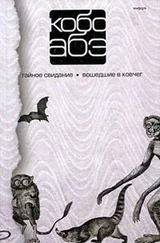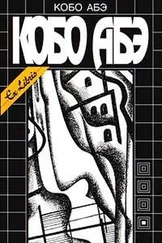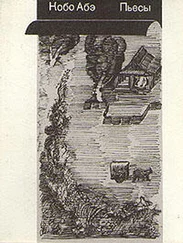Кобо Абэ - The Ark Sakura
Здесь есть возможность читать онлайн «Кобо Абэ - The Ark Sakura» весь текст электронной книги совершенно бесплатно (целиком полную версию без сокращений). В некоторых случаях можно слушать аудио, скачать через торрент в формате fb2 и присутствует краткое содержание. Год выпуска: 1988, Жанр: Современная проза, на английском языке. Описание произведения, (предисловие) а так же отзывы посетителей доступны на портале библиотеки ЛибКат.
- Название:The Ark Sakura
- Автор:
- Жанр:
- Год:1988
- ISBN:нет данных
- Рейтинг книги:3 / 5. Голосов: 1
-
Избранное:Добавить в избранное
- Отзывы:
-
Ваша оценка:
- 60
- 1
- 2
- 3
- 4
- 5
The Ark Sakura: краткое содержание, описание и аннотация
Предлагаем к чтению аннотацию, описание, краткое содержание или предисловие (зависит от того, что написал сам автор книги «The Ark Sakura»). Если вы не нашли необходимую информацию о книге — напишите в комментариях, мы постараемся отыскать её.
The Ark Sakura — читать онлайн бесплатно полную книгу (весь текст) целиком
Ниже представлен текст книги, разбитый по страницам. Система сохранения места последней прочитанной страницы, позволяет с удобством читать онлайн бесплатно книгу «The Ark Sakura», без необходимости каждый раз заново искать на чём Вы остановились. Поставьте закладку, и сможете в любой момент перейти на страницу, на которой закончили чтение.
Интервал:
Закладка:
“Take the next exit.”
“How do you read that place name?” he asked. It was written in an unusual combination of Chinese characters.
“Ka-bu-to, like the helmet worn with an old suit of armor.
Peach-colored (ham-colored?) rifts appeared in the scudding clouds, and the night scene took on the brightness of late afternoon. A bolt of lightning flashed horizontally across the sky. We pulled up at the service area past the tollbooth and unzipped the windows. Then, raising my shirt to my chin to let in the air, I mopped up my perspiration. Suddenly my eyes took in a familiar sight: fukujin-zuke, the red condiment served with curried rice. The picture on the restaurant billboard made me realize I was starving.
“Riding in a jeep gives you an appetite, doesn’t it?” The insect dealer seemed to share my reflexes. “That place over there looks empty.”
“Forget it. There isn’t time.” It wouldn’t do to betray weakness. A ship’s captain has to maintain the proper dignity. Rather than announce myself to him as captain, I resolved to carry on resolutely until he addressed me as “Captain” of his own accord.
“We don’t have to go inside and sit down — let’s just get a takeout dinner. We can eat in the car on the way. How about some charcoal-grilled eels and a couple of cans of coffee?”
“If you intend to eat and drive at the same time, it had better be kamaboko,”* I said firmly, determined to let him know who was in charge.
* Boiled fish paste.
“Okay, kamaboko it is.” He ran off through the rain. Having expected more of an argument, I felt somewhat deflated.
Soon he came dashing back, a handkerchief over his head, his face all smiles. Between the thumb and middle finger of his left hand he was carrying something on skewers, and with his little finger he gripped a paper bag. In his right hand he held two paper cups.
“Jumbo franks and coffee. Also, I got four packages of kamaboko, five to a package. We can have them now in the car, or save them for later over a beer.”
“Jumbo what?”
“Frankfurters. They’re loaded with mustard, so be sure you don’t get any on your pants. With that color, it could be embarrassing.”
I took a bite — and wondered how I had endured the hunger for so long.
“What’s your name again?” I asked.
“Son of a gun. I guess we never did introduce ourselves. Komono here. Manta Komono. Sorry, I’m all out of name-cards.”
“Unusual name.”
“It comes from a word for a kind of reed, the kind used to make mats. My ancestors were probably roadside beggars who sat on reed mats all day. What’s your name?”
“Never mind.”
He tossed the empty frankfurter stick out the window, licked the mustard and ketchup off his fingers, and put the jeep back in gear. “Got something to hide?”
“No, it’s not that. It’s just that for the last few years, about the only time I’ve used my name is when I renewed my driver’s license.”
“That’s a good one. But we’re going to be buddies now; I’ve got to call you something.”
Now that he brought it to my attention, I realized it was true: unconsciously I had been avoiding having people call me by my name. There were times when the sound of my name called out unexpectedly had gone through me like an electric shock. Even when I was an assistant in the photography studio, it hadn’t been long before everybody was calling me Mole. That was so vastly preferable to Pig that I would deliberately introduce myself to people that way. And now I’d become a mole in reality.
“. Actually, if I’ve got to call you something, it might as well be ‘Captain.’ ”
His laughter was like the sound of paper being crumpled deep in my ears. I felt the sharp whiff of loneliness. A chance stranger had just volunteered to call me Captain. Perhaps this was all for the best. Brothers end up mutual strangers, they say, and even in marriage, the more distant the relationship the better. As a principle for choosing my crew, the system of random selection fell right in line with the laws of heredity.
“That shortcut you were talking about. you mean crossing the river and then going over the mountain?”
“How did you know? You shouldn’t be able to figure that much out from a map like that.”
“A deliveryman develops a sixth sense.” He wiped the top of his head with the handkerchief, then blew his nose into it. “Look at those diesel exhaust fumes. That’s what I hate most about expressways. Somebody really ought to get figures on the incidence of lung cancer among truckdrivers.”
Seen from Kabuto City across the river, Mount Boar was a steep cliff with vertical pleats, somewhat like the kabuto of a medieval samurai. In fact, people in the city have always called it Mount Kabuto, using the character for “helmet” to write the mountain’s name. On the other side, it’s known as Mount Boar. Neither name is on the maps, though; nowadays the area is known officially as Skylark Heights.
Heading north, we crossed Kabuto Bridge and came out on Mount Boar. Tangerine orchards stretched along the skirt of the mountain, to our left. At the first bus stop, we turned off the national highway, took a narrow road that cut through an orchard (it looks at first glance like a private road), and headed straight for the top. This was the shortcut. If you don’t know about it, you lose ten or fifteen minutes going out to the railway station and through the underpass, and then skirting back around the foot of the mountain. I’d been counting on this advantage when I’d assured the insect dealer that we could still beat our quarry to the ship.
The road quickly changed to a steep and winding dirt path. Roadside grasses were heavy with rainwater, and the going was slippery. He locked the hubs and went into four-wheel drive. The road finally leveled out near the summit. Here it was less a road than a clearing in a dense woods. The rain had completely stopped, and overhead, ragged clouds flew by like torn shreds of threadbare cloth. Their silhouettes were highlighted by the light of the early moon, or perhaps by lingering rays of the just-set sun.
“What’s that over there? Looks like some sort of monument.”
Now that he said so, it did in a way. On the left of the woods, the crouching black shadow of a rock suggested some structure of no practical use.
“An outcropping of the rock base,” I said. “Apparently a shaft into the original quarry. The land here belongs to whoever owns these orchards, and they must have left it as it was. Everywhere else the land was leveled off.”
“That wouldn’t be the gangway to your ship, would it?”
“You’re way off. You saw the map; it’s farther down the mountain, on the coastal side.”
“I thought it was strange. But the tunnels interconnect underground, don’t they?”
“I’ve done some exploring, but this is much farther than I’ve been able to go. As the crow flies, it must be a good three-quarters of a mile or more.”
At the end of the woods was a fence topped with barbed wire. Along the fence was a light steel-frame building that appeared to be some sort of communal facility (actually it was the office of the Broom Brigade, but at this hour no one would be in yet). In front of it, the barbed wire had been cut, and tire marks were visible on the ground. Then we entered an asphalt road, and the scenery underwent an abrupt change. This was Skylark Heights. The slope, curving gently down to the ocean, was covered with roofs of house after house, all shining in the pale coppery light that leaked from between the clouds until the scene seemed more suggestive of an armadillo than a wild boar.
“We’re almost there. Put it back into two-wheel drive and pick up a little speed.”
Читать дальшеИнтервал:
Закладка:
Похожие книги на «The Ark Sakura»
Представляем Вашему вниманию похожие книги на «The Ark Sakura» списком для выбора. Мы отобрали схожую по названию и смыслу литературу в надежде предоставить читателям больше вариантов отыскать новые, интересные, ещё непрочитанные произведения.
Обсуждение, отзывы о книге «The Ark Sakura» и просто собственные мнения читателей. Оставьте ваши комментарии, напишите, что Вы думаете о произведении, его смысле или главных героях. Укажите что конкретно понравилось, а что нет, и почему Вы так считаете.





